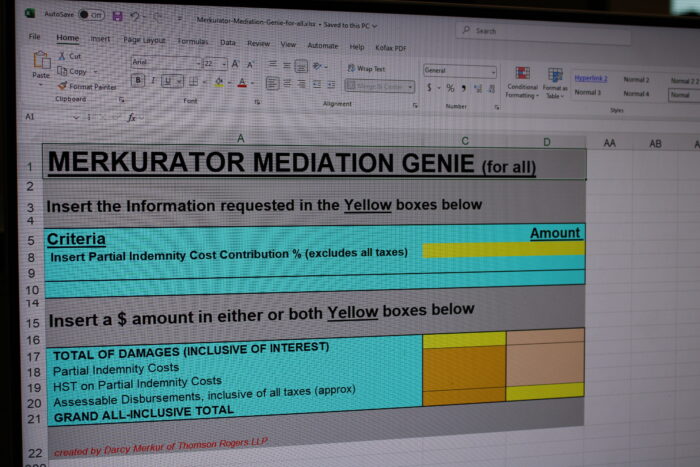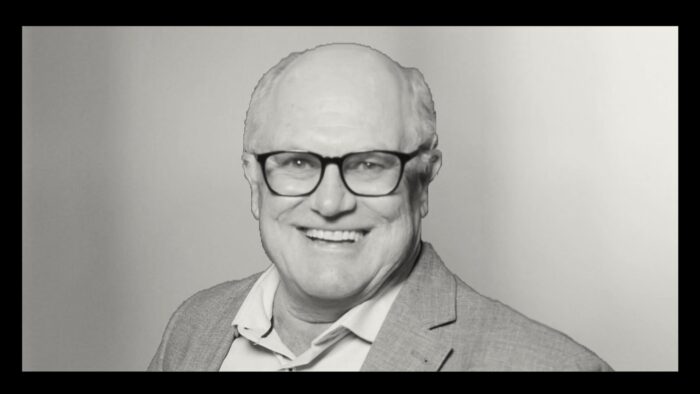Expert Witnesses New Duties
Author(s): Darcy R. Merkur
October 29, 2009
Amendments to the Rules of Civil Procedure, effective January 1, 2010, relating to the use of expert reports serve to:
- codify the duty of an expert;
- set out standard mandatory requirements for expert reports; and,
- alter the deadline for serving expert reports to dates months before pre-trial conferences.
Because these changes are not particularly drastic, it is unclear whether they will have any real impact on the use of experts and expert reports. At most, these new Rules should be considered a direct warning to experts to avoid advocating for parties.
The new ‘Duty of Expert’ rule (Rule 4.1) is aimed at educating experts about their prevailing duty of objectivity—a duty known and understood by lawyers and judges but not necessarily by experts. Implicit in the need for this Rule is the notion that experts are too often seen by the Court as advocates. Experts will be asked to confirm that they understand their duties by signing an ‘Acknowledgment of Expert’s Duty’ (Form 53) and appending it to their reports.
In addition to being asked to acknowledge their duty, experts will now be given a ‘checklist’ of items to address in any expert report. The mandatory checklist, set out in new Rule 53.03, lists items regularly incorporated in most expert reports and therefore should not have a significant influence over the preparation of expert reports.
Perhaps the most important of the new expert report Rule changes is the change in the timing of the delivery of expert reports. The new Rule 53 provisions require delivery of expert reports months prior to the date of the pre-trial conference, as opposed to months prior to the date of the trial.
Undoubtedly it is hoped that the new expert rules will foster an atmosphere of presenting objective expert evidence rather than maintaining a ‘hired gun’ approach. Time will tell whether this objective is in fact met.
The new ‘Duty of Expert’ already exists
Canadian courts already recognize the overarching duty of experts to the court.
The duty of experts was well set out in a British decision known as The Ikarian Reefer[1]. Those duties have been accepted by numerous Ontario and Canadian courts. For example, Justice Moore of the Ontario Superior Court of Justice recently summarized the duties of experts as follows:
- Expert evidence presented to the Court should be, and should be seen to be, the independent product of the expert uninfluenced as to form or content by the exigencies of litigation…
- An expert witness should provide independent assistance to the Court by way of objective unbiased opinion in relation to matters within his [or her] expertise…. An expert witness … should never assume the role of an advocate.
- An expert witness should state the facts or assumptions upon which his [or her] opinion is based. He [or she] should not omit to consider material facts which could detract from his [or her] concluded opinion….
- An expert witness should make it clear when a particular question or issue falls outside his [or her] expertise.
- If an expert’s opinion is not properly researched because he [or she] considers [there to be] … insufficient data … available, then this must be stated with an indication that the opinion is no more than a provisional one…. In cases where an expert witness who has prepared a report could not assert that the report contained the truth, the whole truth and nothing but the truth without some qualification, that qualification should be stated in the report….”[2]
The role of the expert is well understood by lawyers and judges. However, it is arguably not well understood by the experts themselves.
In order to educate the experts, amendments to the Rules of Civil Procedure will require experts to acknowledge their understanding of their overarching duty to the court.
[1] National Justice Compania Naviera S.A. v. Prudential Assurance Co. Ltd., (“The Ikarian Reefer”), [1993] 2 Lloyd’s Rep. 68 at 81-82 (Q.B.D.) [The Ikarian Reefer], rev’d on other grounds but aff’d on this point [1995] 1 Lloyd’s Rep. 455 at 496 (C.A.) [The Ikarian Reefer C.A.].
[2] Frazer v. Haukioja, 2008 CanLII 42207 (O.S.C.), per Justice Moore, at paragraph 141.
New Rule 4.1 of the Rules of Civil Procedure, in place as of January 1, 2010, expressly sets out the now codified duties of the expert. It states:
RULE 4.1 DUTY OF EXPERT
DUTY OF EXPERT
4.1.01 (1) It is the duty of every expert engaged by or on behalf of a party to provide evidence in relation to a proceeding under these rules,
(a) to provide opinion evidence that is fair, objective and non-partisan;
(b) to provide opinion evidence that is related only to matters that are within the expert’s area of expertise; and
(c) to provide such additional assistance as the court may reasonably require to determine a matter in issue.
Duty Prevails
(2) The duty in subrule (1) prevails over any obligation owed by the expert to the party by whom or on whose behalf he or she is engaged.
To make sure the experts themselves understand their duty, paragraph 7 of new subrule 53.03(2.1) requires the expert to sign an acknowledgement (Form 53) setting out their understanding of this duty and to attach the signed acknowledgement to their report. A copy of Form 53 is attached as the last page to this paper.
Given that Rule 4.1 is merely a codification of the current legal obligations of experts, it is unlikely that this Rule change will have any immediate impact on the use of experts.
It may be though that by educating the experts on their ultimate duty, experts will be more committed to remaining objective in their opinions and more empowered to be candid to the Court and to counsel about the limitations of their opinions.
It also may be that the Courts will rely on the signed acknowledgement of duty, to chastise and reprimand an expert believed to be advocating for a party.
The new Expert Report timetable
An important rule change has been made to the timing of service of expert reports. In the past, expert reports had to be served at least 90 days before trial. Amendments to Rule 53.03 now change the deadline for filing expert reports to dates months before the pre-trial conference.
The amended Rule 53.03 requires counsel to serve expert reports at least 90 days before the pre-trial conference and requires responding reports to be served at least 60 days before the pre-trial conference.
The amended Rule 53.03 states:
Experts’ Reports
53.03 (1) A party who intends to call an expert witness at trial shall, not less than 90 days before the pre-trial conference required under Rule 50, serve on every other party to the action a report, signed by the expert, containing the information listed in subrule (2.1).
(2) A party who intends to call an expert witness at trial to respond to the expert witness of another party shall, not less than 60 days before the pre-trial conference, serve on every other party to the action a report, signed by the expert, containing the information listed in subrule (2.1).
Furthermore, subrule 53.03(2.2) mandates the parties to agree to an expert report service timetable within 60 days of setting the matter down for trial.
Schedule for Service of Reports
53.03 (2.2) Within 60 days after an action is set down for trial, the parties shall agree to a schedule setting out dates for the service of experts’ reports in order to meet the requirements of subrules (1) and (2) unless the court orders otherwise.
Because it is difficult for lawyers, especially in Toronto-based actions, to estimate an approximate date for the pre-trial conference, it is likely that parties will, after setting a matter down for trial, simply agree to exchange expert reports in accordance with the minimum time requirements set out in subrule 53.03(1).
For those concerned about the ability to file further expert reports closer to trial, it should be noted that the rule for serving supplementary reports remains 30 days before trial, presumably to allow the parties to update their reports.
Time will tell how lenient the courts will be in allowing new expert reports to be commissioned and served after pre-trial conferences in light of this rule change.
The new Expert Report checklist
Further amendments to Rule 53.03, in effect January 1, 2010, set out certain basic requirements for an expert report.
The former Rule 53.03 referred to expert reports merely setting out the author’s name, address and qualifications along with the substance of their testimony.
The new mandatory requirements for expert reports set out in subrule 53.03(2.1) are as follows:
53.03 (2.1) A report provided for the purposes of subrule (1) or (2) shall contain the following information:
- The expert’s name, address and area of expertise.
- The expert’s qualifications and employment and educational experiences in his or her area of expertise.
- The instructions provided to the expert in relation to the proceeding.
- The nature of the opinion being sought and each issue in the proceeding to which the opinion relates.
- The expert’s opinion respecting each issue and, where there is a range of opinions given, a summary of the range and the reasons for the expert’s own opinion within that range.
- The expert’s reasons for his or her opinion, including,
- a description of the factual assumptions on which the opinion is based,
- a description of any research conducted by the expert that led him or her to form the opinion, and
iii. a list of every document, if any, relied on by the expert in forming the opinion.
- An acknowledgement of expert’s duty (Form 53) signed by the expert.
While the items identified in subrule 53.03(2.1) are typically already included in most expert reports, by being mandated to follow this checklist, an expert may be forced to be even more thorough and comprehensive in their reports.
One item that may be of particular concern for lawyers in this checklist is the express requirement for the expert to disclose in their report the instructions provided to them in relation to the proceeding. While this is not something new, lawyers will have to be aware that they may not be able to withdraw instructions given to an expert, especially when you consider this requirement in conjunction with the newly codified Expert’s Duty section.
Conclusion
The amendments to the expert rules will not have an immediate impact on the use of experts and expert reports in Ontario courts.
In time, though, Courts may highlight these new delineated duties when criticizing experts that are seen as advocates, causing a more profound impact on the expert’s credibility in subsequent proceedings.
The changes to the expert rules are best described as a warning shot to experts making a handsome living acting as ‘hired guns’.
Prepared by:
Darcy Merkur
Thomson Rogers
Tel: 416-868-3176
[email protected]
(October 2009)
FORM 53
Courts of Justice Act
ACKNOWLEDGMENT OF EXPERT’S DUTY
(General heading)
ACKNOWLEDGMENT OF EXPERT’S DUTY
- My name is _______________________________ (name). I live at ___________________ (address), in the __________________ (name of city) of _________________________ (name of province/state).
- I have been engaged by or on behalf of ___________________ (name of party/parties) to provide evidence in relation to the above-noted court proceeding.
- I acknowledge that it is my duty to provide evidence in relation to this proceeding as follows:
- To provide opinion evidence that is fair, objective and non-partisan;
- To provide opinion evidence that is related only to matters that are within my area of expertise; and
- To provide such additional assistance as the court may reasonably require, to determine a matter in issue.
- I acknowledge that the duty referred to above prevails over any obligation which I may owe to any party by whom or on whose behalf I am engaged.
Date: _______________________ ___________________________
(signature)
NOTE: This form must be attached to any report signed by the expert and provided for the purposes of subrule 53.03(1) or (2) of the Rules of Civil Procedure.
Share this





